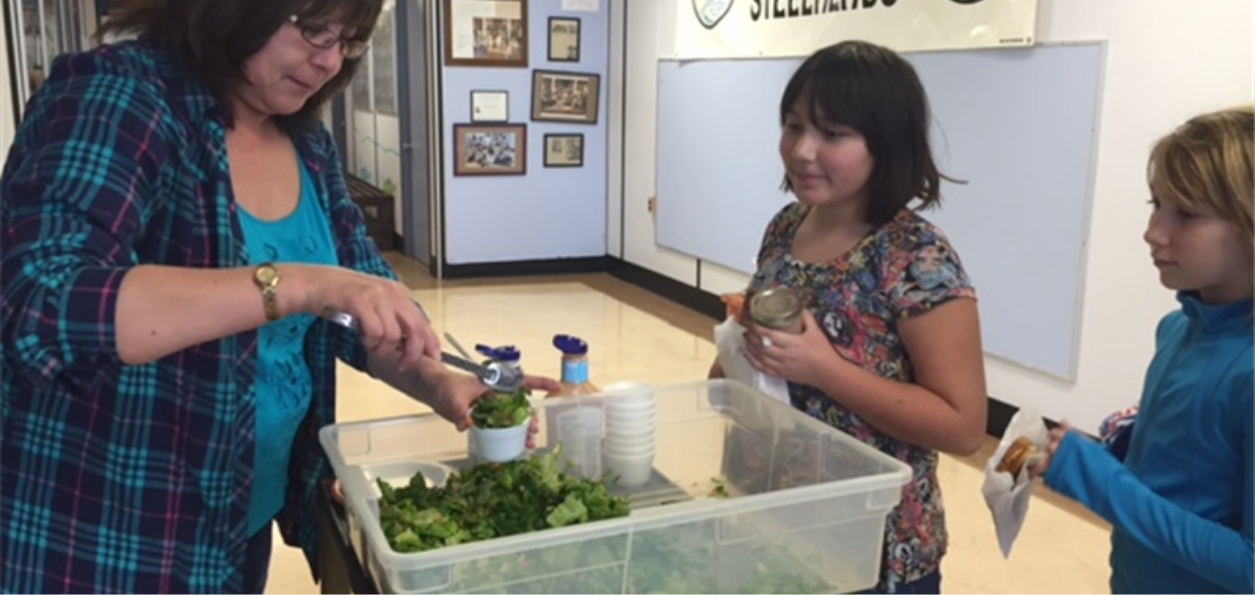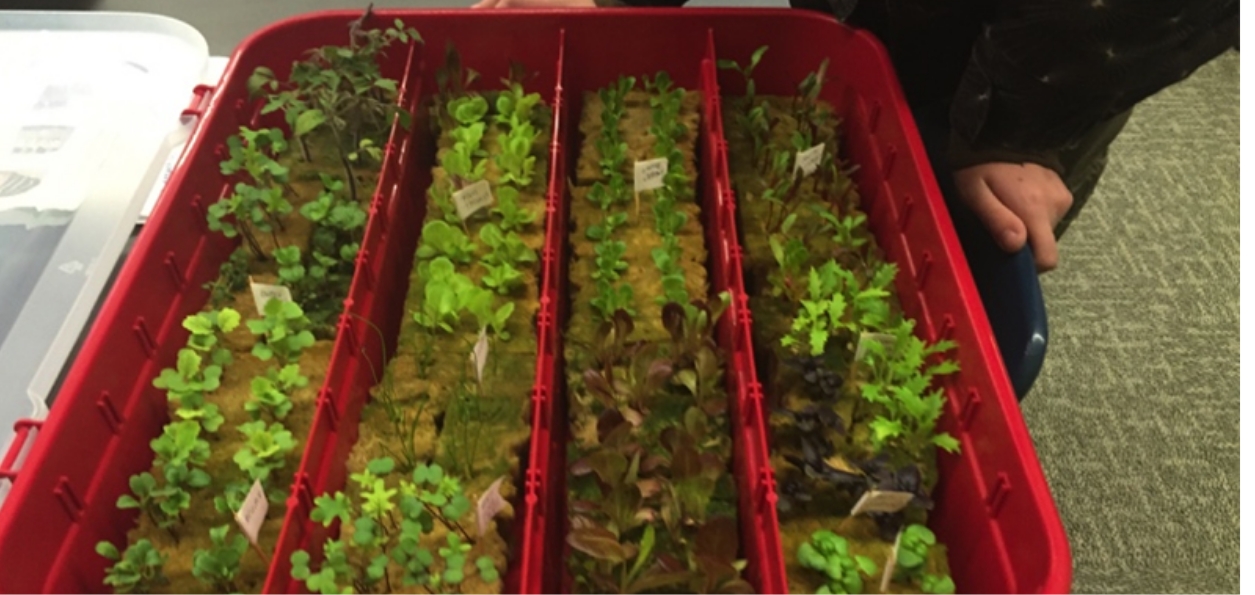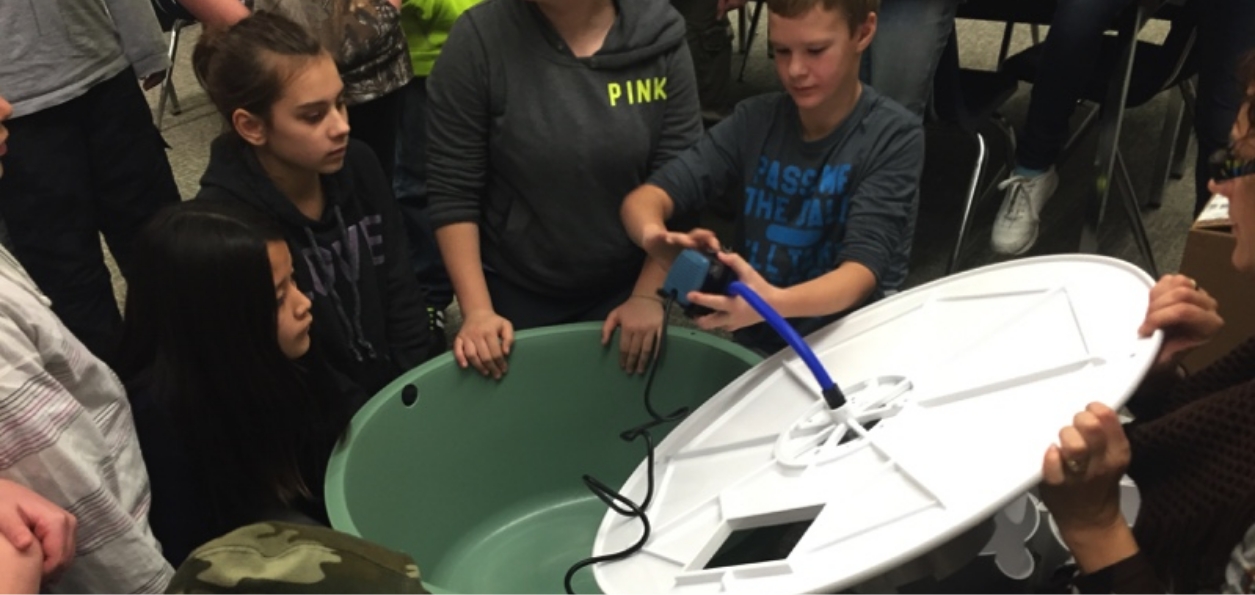Silverthorne is a rural school of 163 students with a large aboriginal presence. We are housed in a lower socioeconomic area which is very evident in our school population. By reviewing the vulnerability checklist provided by the district, a large number of our children and their families are vulnerable for a variety of reasons (poverty, socially/emotionally, academically, behaviourally, physically, and culturally). Many of our students come to school without breakfast or lunch so we offer both a breakfast and a hot lunch program. In addition, there is often a lack of variety in foods that students bring; there is an absence in fruits and vegetables on a regular basis. We have a strong relationship with the Friendship centre which is located across from the school field alongside the Soup Kitchen; which, our Aboriginal Support worker and teachers often attend with some of our students.
We recognize the importance of having our students feel safe and cared for in a deep and meaningful way and understand that in order to change the life chances of many of our students they will need at least three adults in our school that they believe care deeply for them and believe they can be successful. We also recognize that a large number of our students and their families need extra emotional support to feel safe at our school. We have a visible absence of parents that are in a lower income bracket.
One of the things we noticed was the lack of fresh vegetables and lack of variety of fruits in student lunches. We also noticed, that when offered, students really enjoyed and asked for extra vegetables when available. Because of location, short growing season, and the current school year (Sept. – June) we do not have garden grown vegetables available at the school. Our initiative evolved as we started discussing gardening within the school environment and concerns about leaving gardens over the summer and actually being able to harvest a crop and use it. This is when we started to investigate indoor gardening and the Tower Garden system. It is a perfect way to grow our own food right in the classroom. Students learned about indoor gardening and be were able to enjoy the produce they grew. This allowed staff and students to grow seedlings and plant them in an aeroponics growing pod. For the kitchen, we were able to offer a small salad bar to supplement our hot lunches. The PAC helped fund raise to purchase a small salad bar so we could serve salads on a regular basis!
Students, we are hoping, will be able to transfer their learning to the larger community gardens, have a better understanding of healthy eating and feel better physically. We are hoping in the spring to offer some of our produce for sale at a reasonable price to the community at the Farmer’s Market. Students have used the scientific method to create hypotheses about growth and predict what would happen to the plants in the tower garden. They learned how aeroponics work, they were/are responsible for ongoing care of our gardens and they discovered some of the challenges (aphids) when growing our plants. Students were/are able to help harvest what we grow and make salads that are then served for free to the student body. So far, the experience has been amazing and we are offering salad once a week but are hoping to increase that to twice a week.
The Tower Garden initiative has had a large impact on the whole school community. There are a number of vulnerable students that work 1:1 with adults to look after the gardens (feeding, filling with water, harvesting and building salads). Each garden also had a classroom that was responsible for it. We had different adults involved in different ways – for example: one of our education assistants previously worked in a greenhouse and was able to take some time from her schedule and teach a class how to treat plants when infested with aphids. This was a different adult in the building that would not typically have been in that role. Immersing our students and staff in the gardening has allowed us to connect more kids with more adults in a more intimate way. Although, this has been powerful at the school, we have not had a lot of parents help with the actual gardens. The tower gardens are very visible and have generated a lot of interest and support but the care to date has been with staff and students.
I believe students feel very accomplished and are very excited to try our salads and look forward to their role in continuing to look after ‘their’ gardens!
We did experience some challenges. We ended up with aphids on one tower and had to deal with getting rid of them. Although this was a setback for growth, it was a great learning opportunity for our students! We also had to figure out the right balance of lighting and water for our plants – again a learning experience.
The success of the project was the impact and involvement of our students and staff. All staff members were involved and continue to be involved and promote it within the classroom. We are now at the point of classes growing seedlings to add to our gardens where we have depleted the current produce.
Students were engaged, teachers were engaged and we have only just started serving salads. However, at this point, we do have lineups and are tracking how many salads we are serving. We have serve approximately 53 salads at a time and unfortunately have to turn kids away.
Advice for others…DO IT! Tower Gardens are 100% intact with nutrients, light and water. They are easily sustainable. I would further recommend all staff have to be committed in making the gardening a part of the culture of the school. Watch for aphids – ours ended up very challenging to dispose of because we did not recognize what they were and when we returned after Christmas break one tower was infested.
Looking back, I believe we could be more intentional and could deepen connections with the community as we work to master the Tower gardens. I will be looking for funding to purchase three more gardens with the hopes we can support families in need. Perhaps we will be able to sell our produce to support the Gardens so they become sustainable. In the future, I am hoping to further develop a gardening team that will allow students to take on this initiative and develop confidence and leadership skills.


